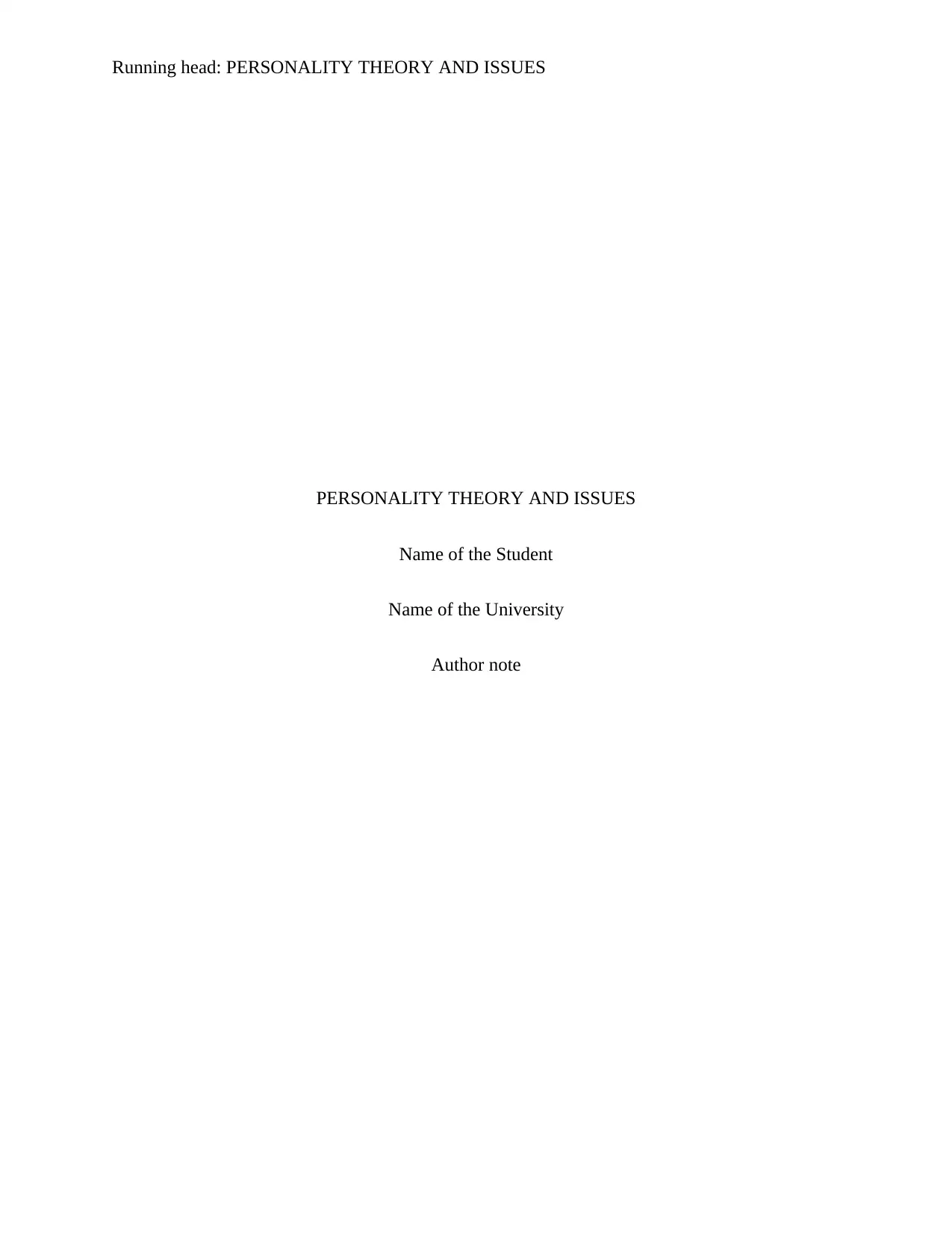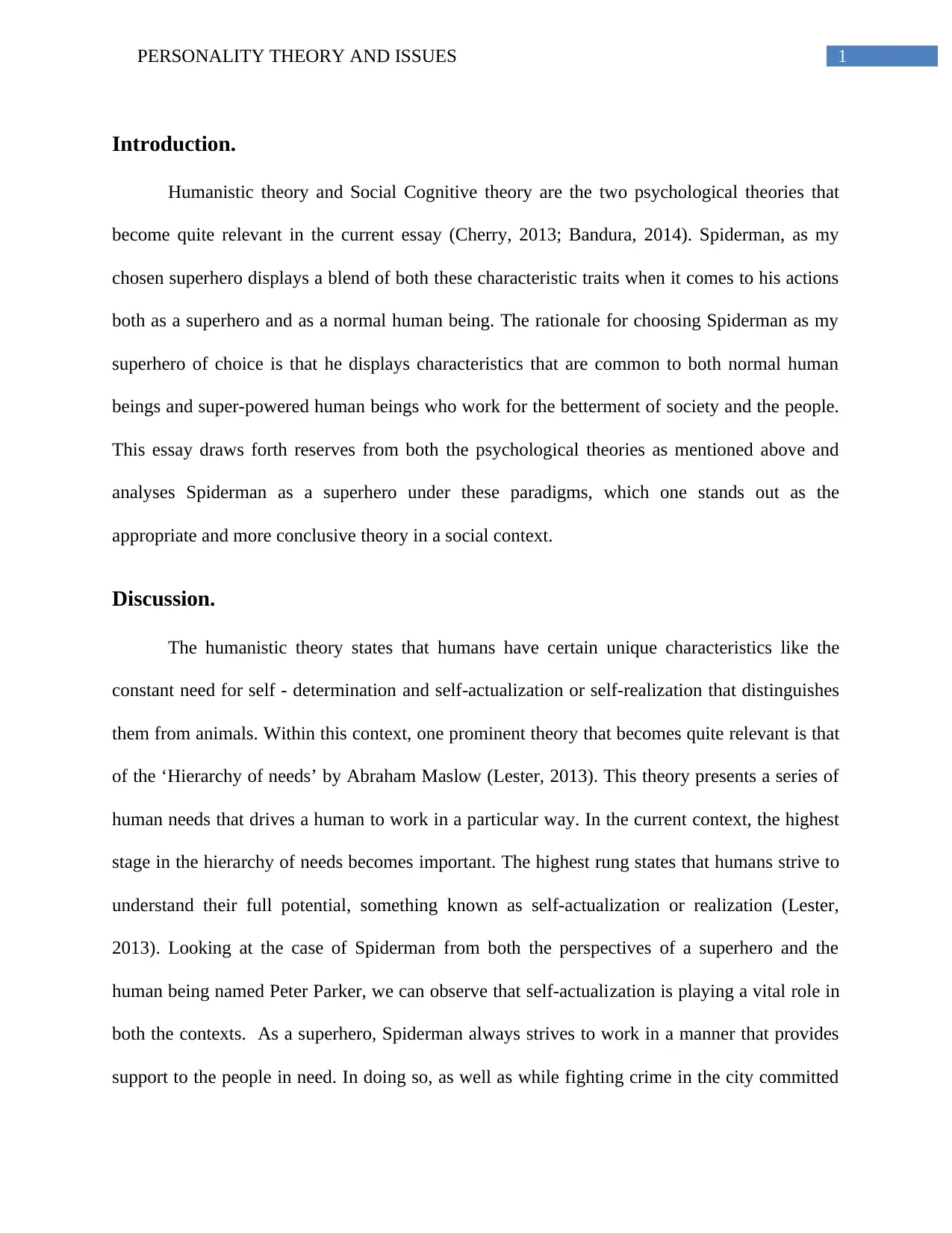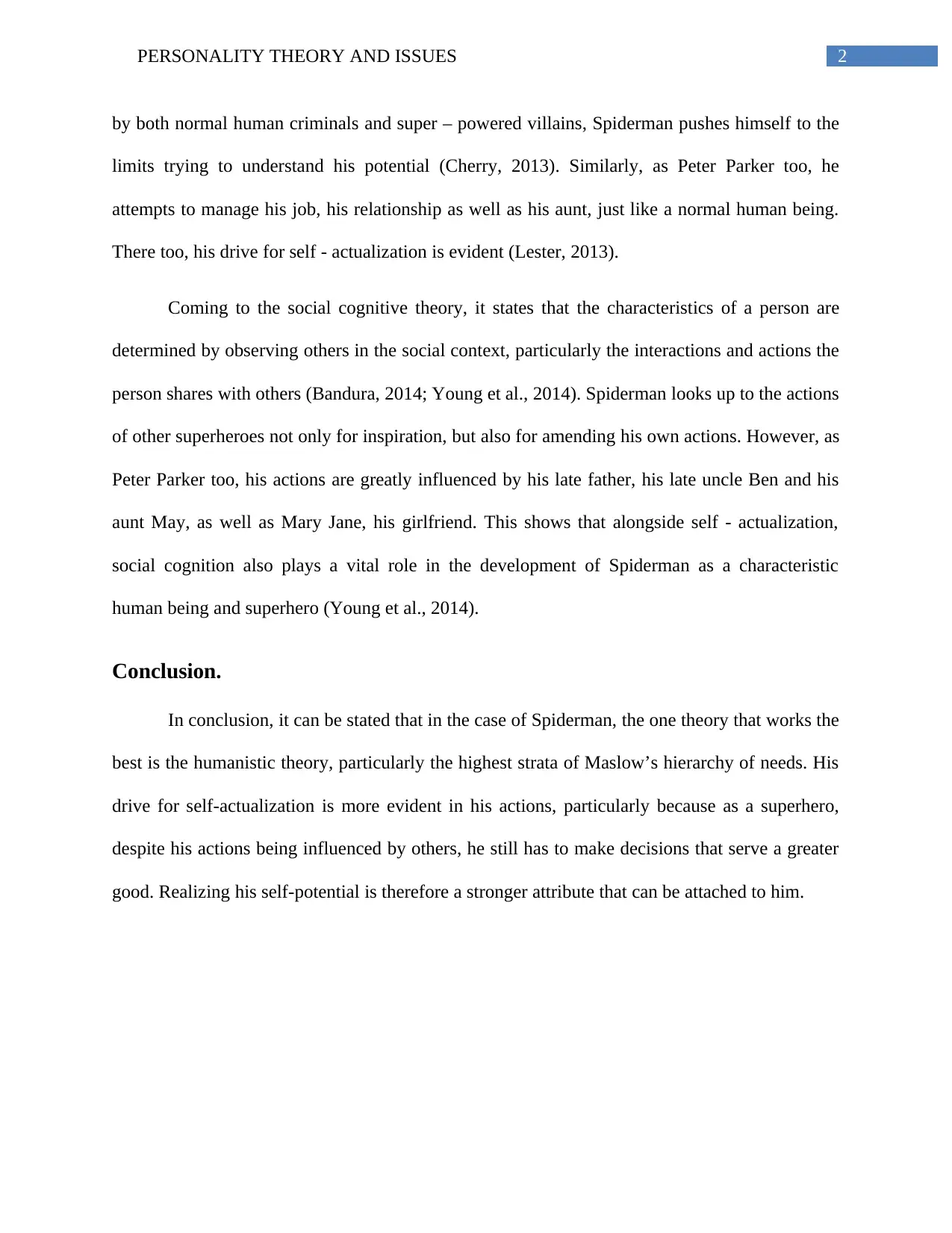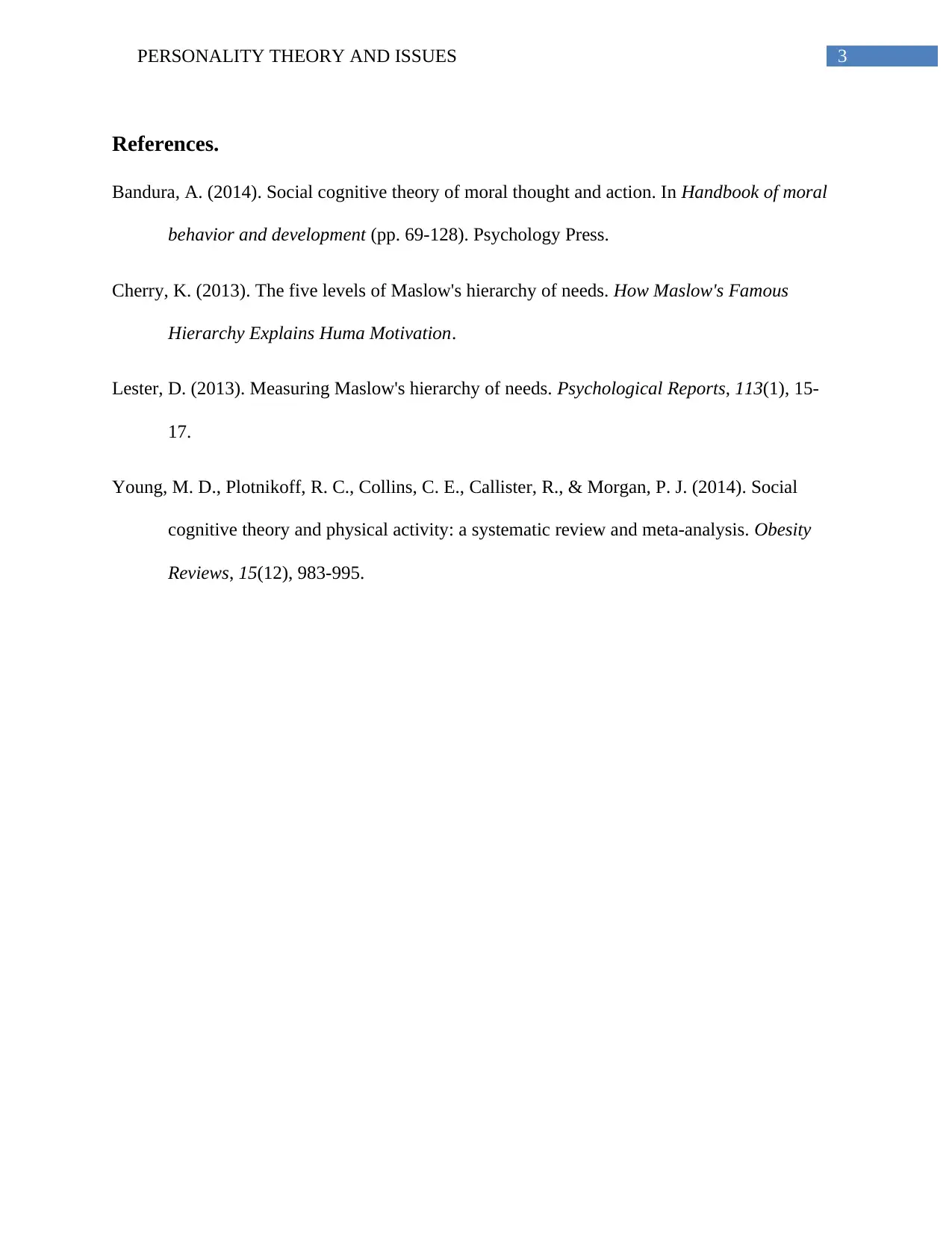Personality Theory and Spiderman: A Comparative Psychological Analysis
VerifiedAdded on 2022/08/25
|4
|797
|23
Essay
AI Summary
This essay provides a comprehensive analysis of Spiderman's personality, examining him through the frameworks of humanistic and social cognitive theories. The essay begins by introducing these two psychological perspectives and then applies them to Spiderman, focusing on how his actions as both a superhero and a normal human being, Peter Parker, are shaped by these theories. The core argument centers on the applicability of Abraham Maslow's hierarchy of needs, particularly self-actualization, to Spiderman's motivations and behaviors. It explores how Spiderman's drive to help others and his personal endeavors reflect his striving for self-realization. Furthermore, the essay considers the influence of social cognitive theory, acknowledging the impact of his relationships and observations on his character development. The conclusion emphasizes the dominance of humanistic theory, specifically self-actualization, in explaining Spiderman's actions and decisions, highlighting his inherent desire to serve a greater good. The analysis is supported by references to relevant psychological literature, providing a robust academic foundation. This assignment is available on Desklib, a platform offering AI-based study tools and resources.
1 out of 4







![[object Object]](/_next/static/media/star-bottom.7253800d.svg)